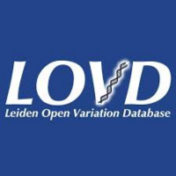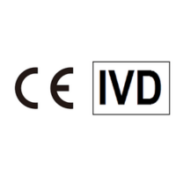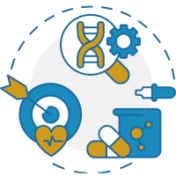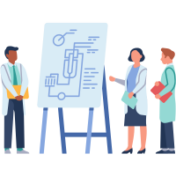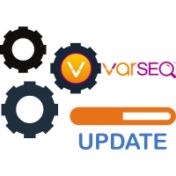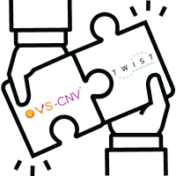The PGx Variant Detection and Recommendations algorithm is the driving force behind the pharmacogenomic analysis capabilities provided by VSPGx in VarSeq. This algorithm is used to identify pharmacogenomic diplotypes and annotate them against drug recommendations. In this blog post, we outline the steps involved in the process and explain the annotation tracks utilized by the algorithm at each stage of… Read more »
At Golden Helix, we are proud to support researchers and clinicians worldwide who push the boundaries of precision medicine. Our VarSeq software continues to be instrumental in the analysis and interpretation of genetic data, enabling groundbreaking discoveries and advancements. Recently, several papers have been published that showcase the power and versatility of VarSeq in various research domains, from neurodegenerative diseases… Read more »
In the last year, we have seen a surge in customers moving to whole genome sequencing. Not only does whole genome sequencing provide unparalleled gene coverage compared to whole exome, but depending on the kind of sequencing, you may expect to see additional file types as well. For example, our partners at PacBio will provide an additional VCF containing copy… Read more »
Golden Helix has a long history of developing a high-quality NGS-based CNV caller. This has become even more apparent with our latest publication, where we teamed up with Twist Bioscience to demonstrate VarSeq capability of calling large copy number variants utilizing their clinical whole exome sequencing data. You can access the recent publication here: Analyzing Performance of Twist Bioscience Exome… Read more »
We continue to make significant contributions to the field of genomic analysis through collaborative studies, innovative software solutions, and robust data interpretation methodologies. This blog highlights four recent contributions from our team and collaborators, showcasing the breadth of our research and its implications for clinical practice. Analyzing Performance of Twist Bioscience Exome Enrichment with Spike-in CNV Backbone Panels at Various… Read more »
The Leiden Open Variation Database (LOVD) is an online database designed to facilitate the collection and display of clinically classified variants. Since its initial release in 2004, LOVD has evolved significantly, with the latest version, LOVD 3.0, greatly expanding the number of annotated variants. Golden Helix is excited to announce the release of two new annotation tracks containing data from… Read more »
We are excited to participate in the European Human Genetics (ESHG) 2024 conference, where we will showcase our latest advancements in genetic analysis software. Attendees can visit Booth #428 to explore tools like VarSeq, VS-CNV, VSClinical, VSPipeline, and VSWarehouse. These solutions, aligned with ACMG and AMP Guidelines, offer powerful options for genomic analysis. Live demos will highlight our newest pharmacogenomics… Read more »
VarSeq enables users to import structural variants for annotation, filtration, and subsequent clinical or other analyses. Structural variants are often called during secondary analysis as belonging to two broad categories – Copy Number Variants (CNVs) with the file suffix “…_CNV.vcf” and Breakends with the file suffix “…_SV.vcf”. This blog will give some insight into how structural variants are triaged when… Read more »
We are pleased to announce that Golden Helix has received CE mark approval for its genetic analysis platform VarSeq Suite. This significant regulatory milestone paves the way for the expansion of our advanced genetic analytics products to the European market, ensuring compliance with the European Union’s health, safety, and environmental protection standards. Receiving the CE mark certifies that our VarSeq… Read more »
The recent release of VarSeq 2.6.0 was filled with so many customer-requested features (for example, our long-awaited PGx workflow!) that some of our other new features have not yet had their time in the spotlight. For this blog, we are thrilled to announce that with the release of VarSeq 2.6.0, we have made WGS CNV calling more user-friendly than ever… Read more »
Precision tools are paramount for unlocking groundbreaking discoveries in the rapidly evolving field of genetic research. We have consistently paved the way with VarSeq—an all-encompassing solution tailored for genomics professionals. This sophisticated tool not only simplifies the complexity of genomic data but also amplifies its potential to drive significant advancements in medical research and personalized care. From aiding pediatric nephrology… Read more »
We are pleased to announce new training materials are available for multi-sample workflows in VarSeq! Specifically, we have a New Carrier Screening Tutorial and New Onboarding and Training guides for Carrier Screening Analysis in VarSeq, and Clinical Evaluation and Carrier Status Reporting in VSClinical. This blog gives an overview of what the user can expect to encounter when working through… Read more »
Golden Helix is gearing up for PacBio PRISM 2024, where they will showcase their genomic solutions in multiple U.S. cities. The events will occur in Bethesda, Houston, San Francisco, and Boston throughout May. These events offer a prime opportunity to network with fellow researchers, gain valuable insights, and find inspiration for your lab work. Don’t miss out on the chance… Read more »
Variant curation is one of the most important aspects of a next-generation sequencing workflow. The routine application of previously rendered interpretations, paired with the ability to take into account evolving knowledge bases, allows clinical practices to rapidly and accurately provide life-saving results to patients. Hence, assessment catalogs, versatile databases that store variant interpretations for rapid access, form one of the… Read more »
In this blog post, we will explore the nuances of variant calling and import in the context of VSPGx. We will discuss the importance of integrating must-call variant definitions into the calling processes and provide guidance on incorporating copy number variants (CNVs) and structural variations (SVs) into your PGx analysis workflow. Must Call Variant Files To ensure the optimal performance… Read more »
The release of VarSeq version 2.6.0 provides many new features. Most notably is our support for tertiary analysis of Pharmacogenomic (PGx) data. VarSeq not only calls the necessary gene diplotypes for your PGx panels but also handles large batches of samples from the called diplotypes to final report on drug recommendations. Here is a link to a recent webcast demonstrating… Read more »
Bioinformatic freedom is core to the user experience with Golden Helix software, a topic with which you will be well-versed if you’ve kept up on our recent blogs. We are constantly endeavoring to provide our users with powerful tools to tackle complex and impactful next-generation sequencing (NGS) workflows while maintaining transparency and the ability to customize and augment each component… Read more »
In the rapidly evolving field of genomics, innovative technologies, and methodologies are constantly being developed to enhance our understanding and diagnosis of genetic disorders. Golden Helix’s VarSeq and VS-CNV software platforms stand at the forefront of this revolution, offering powerful tools for genetic data analysis and interpretation. This blog highlights recent research endeavors where these tools have been instrumental. From… Read more »
We have been building up to the final release of VarSeq 2.6.0 for a couple of weeks now, but we are excited to announce that 2.6.0 is officially available! VarSeq 2.6.0 is an exciting release as this version of VarSeq features the introduction of VSPGx, offering a complete pharmacogenomic workflow, including data import, variant analysis, and report generation. We have… Read more »
Recently, at ACMG 2024, we unveiled a collaborative research project with Twist Biosciences. By utilizing Twist Bioscience enhanced Exome 2.0 Plus Comprehensive Exome Spike-In capture panel with added backbone probes, we developed a multi-modal CNV caller designed specifically for target-capture NGS data to detect single-exon to whole-chromosome aneuploid CNV events. We are proud to say that from Golden Helix, Andreas… Read more »





